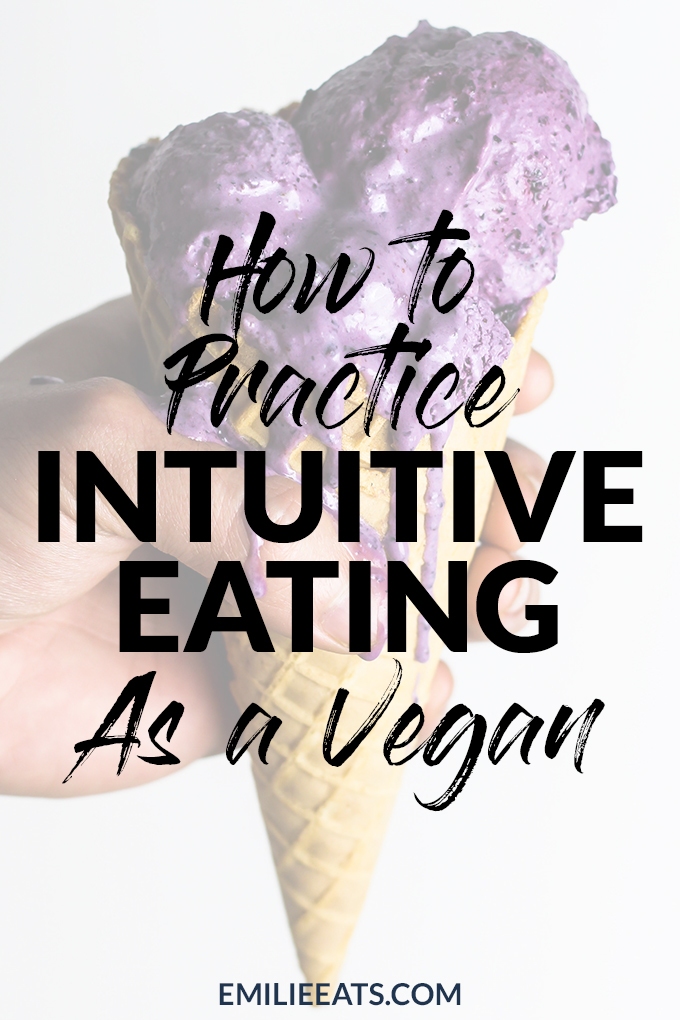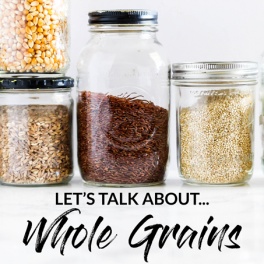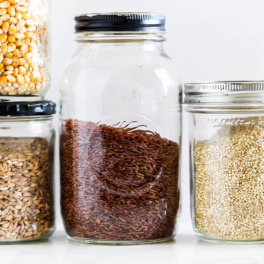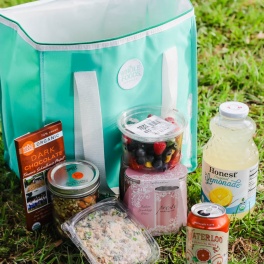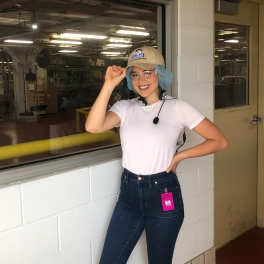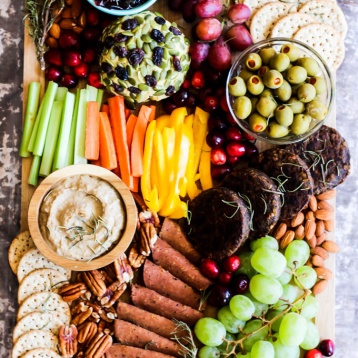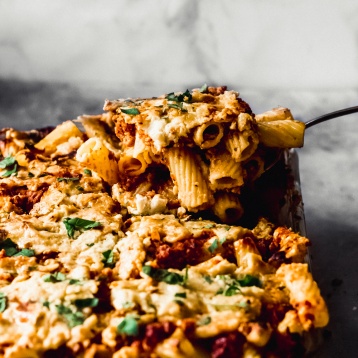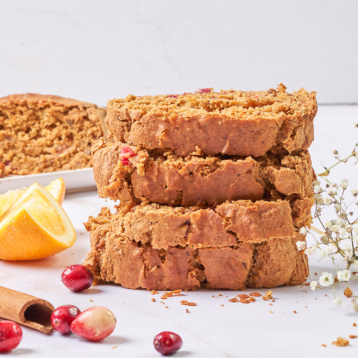Today I have a very, very special post for you from a special guest – Taylor Wolfram, MS, RDN, LDN! I found Taylor during my intense search for dietitians who were vegan but also practiced intuitive eating and body positivity. To be honest, I feel like vegans are always looked down upon in the intuitive eating crowd, so I wanted the perspective of someone who belongs in both worlds.
Taylor is the kind of dietitian I aspire to be one day – she believes in a mindful, non-diet approach to sustainable, compassionate whole body wellness, hence her website www.wholegreenwellness.com. We also bonded over our love of cats, hehe. Enjoy this guest post from Taylor where she shares the basics of practicing intuitive eating as a vegan!
Greetings! I’m delighted to be here sharing some practical tips for you plant-based foodies out there. A big thank you to Emilie for inviting me to pen a guest post for her awesome blog! I am so impressed by how much she has accomplished at such a young age and I am super excited she has chosen the path to become a registered dietitian nutritionist.
A little bit about me: I’m a vegan registered dietitian nutritionist and I use a non-diet approach to sustainable wellness, meaning I help people develop realistic, lifelong lifestyle habits that help them feel good without dieting, restriction or obsessive exercise. I have a small coaching practice in addition to my full-time job in nutrition communications and I use the principles of intuitive eating to guide clients toward their wellness goals.
According to Evelyn Tribole, MS, RD, and Elyse Resch, MS, RDN, CEDRD, the 10 principles of intuitive eating are:
- Reject the diet mentality
- Honor your hunger
- Make peace with food
- Challenge the food police
- Respect your fullness
- Discover the satisfaction factor
- Honor your feelings without using food
- Respect your body
- Exercise – feel the difference
- Honor your health
To learn about each of these principles, I highly recommend reading Intuitive Eating by these two authors as well as using their Intuitive Eating Workbook.
*Note from Emilie: Reading Intuitive Eating was incredibly eye-opening for me and really changed the way I viewed food & my body. Highly recommend for anyone getting started on this journey!
While anyone can re-learn how to eat intuitively (I say re-learn because we all are born intuitive eaters – it’s our culture that teaches us to prioritize external cues), there may be some unique barriers for vegans.
Although plant-based food is gaining in popularity, it isn’t always plentiful everywhere we go. Many of these tips are similar to what I share with non-vegan clients, but vegans may need to put a little extra effort into being prepared. Here are my top four strategies for eating intuitively as a vegan.
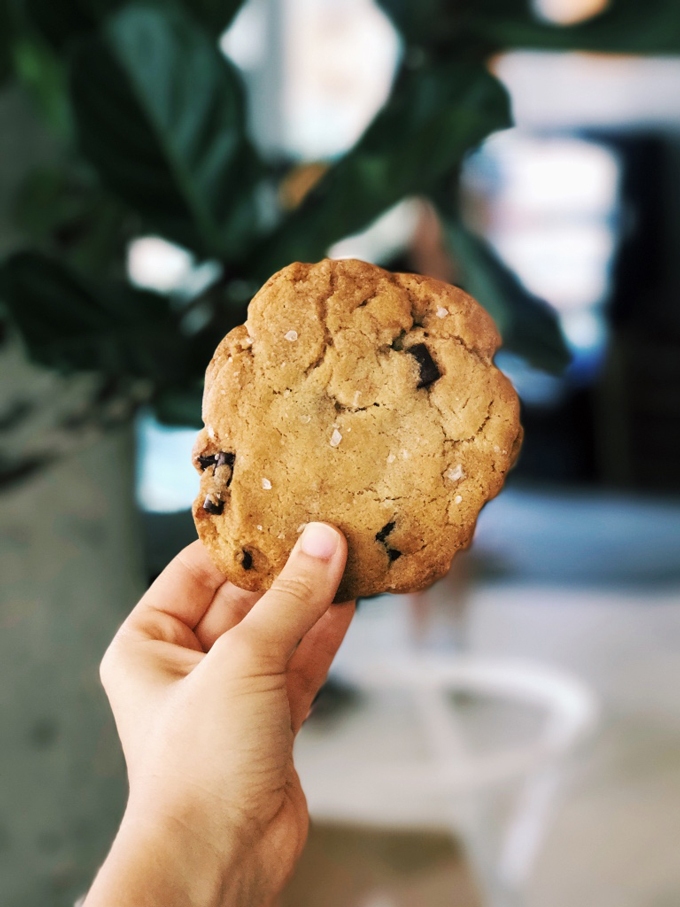
1. Trust yourself to eat what feels good
Sounds simple, right? Eating when you’re hungry, having a craving or wanting to take pleasure in a specific food or beverage is very instinctual but the diet culture in which we live tells us we need to restrict certain foods or feel shame and guilt when we eat them.
The first principle of intuitive eating is rejecting the diet mentality, which means tuning in to internal cues and literally following your gut. Note that intuitive eating is not a hunger/fullness diet – there are many reasons one may eat when not physically hungry – and that is OK.
Eating for physical as well as mental and emotional satisfaction is natural and normal. Do we eat dessert because we’re physically hungry? Not usually. Appreciating that food helps us feel good in a variety of ways, and that is nothing to be ashamed about. However, if you’re relying on food to cope with something particularly distressing, consider working with a therapist. Food can help us feel better when we’re sad, but if it prevents us from addressing issues, it’s time to get help.
2. Let go of food rules
This may require you to examine your motivations to go vegan. If it’s for dieting reasons, this step is going to be a bit more difficult than if you went vegan for ethical reasons and already eat a wide variety of foods. If you’re restricting foods such as oil, salt and processed vegan alternatives, it will take some practice letting go of food rules and allowing yourself to enjoy the foods you want.
When we restrict a certain food, it causes anxiety and increases the chances we will binge on that food. The more you tell yourself you can’t have a brownie, what happens? Your craving grows exponentially. What if you ate a brownie when you wanted one, without distraction, enjoying every crumb and every moment of that experience? The craving would be satisfied and you could go about your day without obsessing over the brownie.
This is scary to some people. They think if they “give in” to certain food desires that they’ll never stop eating. They believe to be healthy, they must keep a close watch of everything they eat and tight control over their daily diet and exercise. While you may find yourself eating past fullness after a period of restriction (see note about food scarcity in the next section), it eventually levels out. Making peace with food is a journey.
Some people have been taught to fear certain foods – that if they eat them, they will die a certain death of cancer or heart disease – so they must restrict them. Turns out science doesn’t yet know which diet is best for humans – and there likely isn’t a single way of eating that is best for everyone.
We do know that eating an abundance of plant foods such as vegetables, fruits, legumes, whole grains, nuts, seeds and fats from plant foods such as olives and avocados is linked to better health outcomes. We also know that dieting and restriction is linked to higher risk of eating disorders, and believe it or not, weight gain in the long run. Emerging research suggests that intuitive eating is linked to better nutrient intake, reduced disordered eating behaviors and healthy weight maintenance.
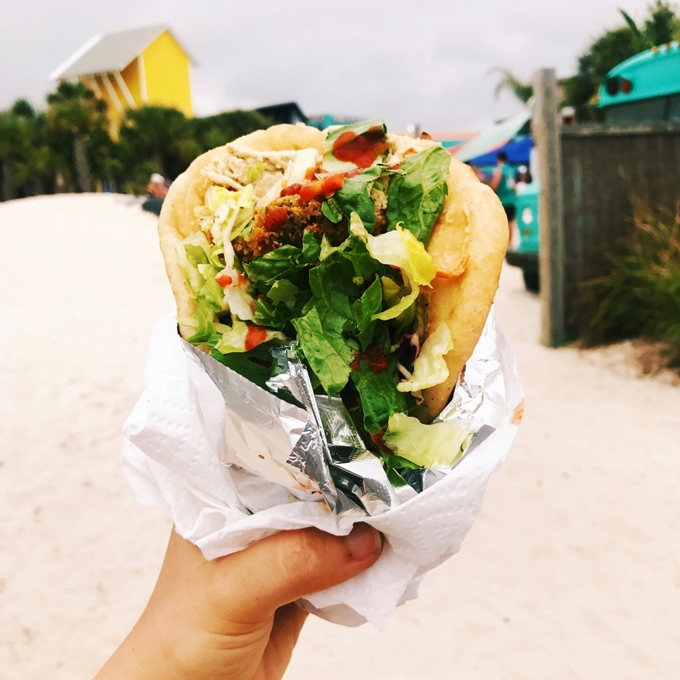
3. Keep food with you
Keeping snacks on hand for when hunger strikes is a good strategy for everyone, but can be extra impactful for vegans, especially when going on a trip or attending an event where plant-based options are uncertain.
In order to honor our hunger cues, we need to have food available. Food scarcity – both in terms of true food insecurity and restriction due to dieting – is associated with bingeing when food becomes available. Biologically, this makes sense. If you’re starving and your body doesn’t know when it will have access to food next, of course you will be driven to consume as much as you can.
Snacking between meals is helpful for a lot of people. Some people have self-imposed rules about when it’s OK to eat. Instead, let your body dictate when it’s time to eat. Whatever your favorite snacks, keep them in your bag, car, desk, etc.
Before dining out, look up the menu and if needed, call the restaurant to verify vegan options. When on a road trip, look up vegan-friendly establishments along the way and also pack snacks. Remember to keep cold foods cold by keeping them in a cooler packed with ice.
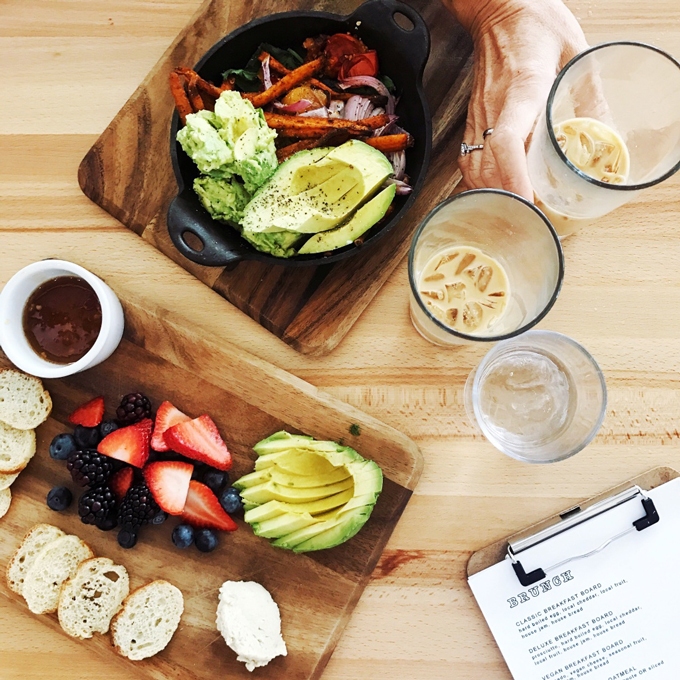
If you’re at an event with non-vegan food that looks delicious, remind yourself that you can buy or make that food whenever you want. This type of situation can feel restrictive – but most vegans don’t see non-vegan food as food – and when we choose not to eat something because of our ethics, it doesn’t have the same effect as restricting food due to dieting reasons.
If this line feels blurred to you, it’s important to examine your reasons for abstaining from animal products. If you don’t have an ethical objection to eating a certain food because it causes harm to animals, then why are you restricting it?
*Note from Emilie: This is something I really had to reflect on through my journey post-disordered eating. Why was I vegan? Was it because I was trying to have the “perfect” diet? I realized that for me, there are ethical reasons why I choose to live compassionately. I just needed to chill out and allow myself to eat more of the vegan “fun” foods from time to time. I never feel restricted because, like Taylor said, I no longer view meat/dairy/eggs as food.
4. Work with a registered dietitian nutritionist
This is something I recommend all vegans do at least once, particularly with an RDN specializing in plant-based nutrition, to ensure you’re getting all the nutrients you need. With the vast amount of misinformation on the Internet about plant-based diets, there are many vegans not consuming enough of certain nutrients or unnecessarily restricting specific foods.
For more information, check out www.vegetariannutrition.net for credible nutrition information from registered dietitian nutritionists.
If you think you might have an eating disorder, please seek help. A medical team including a therapist and RDN is imperative to successful treatment. Recovery is possible!
Want to learn more about the intersection of intuitive eating, body positivity and vegan nutrition? Check out some of these other informative posts:
Are Vegans on a Diet or Is It a Lifestyle?
Why All Vegans Should Be Weight-Inclusive
3 Strategies for Maintaining a Vegan Lifestyle in Eating Disorder Recovery

Taylor Wolfram, MS, RDN, LDN, www.wholegreenwellness.com
Taylor is a non-diet registered dietitian nutritionist promoting sustainable wellness through self-care. She works full-time in nutrition communications and has a small private practice in Chicago, IL. She’s been vegan for over 8 years and helps plant-based eaters focus on variety rather than restriction.

